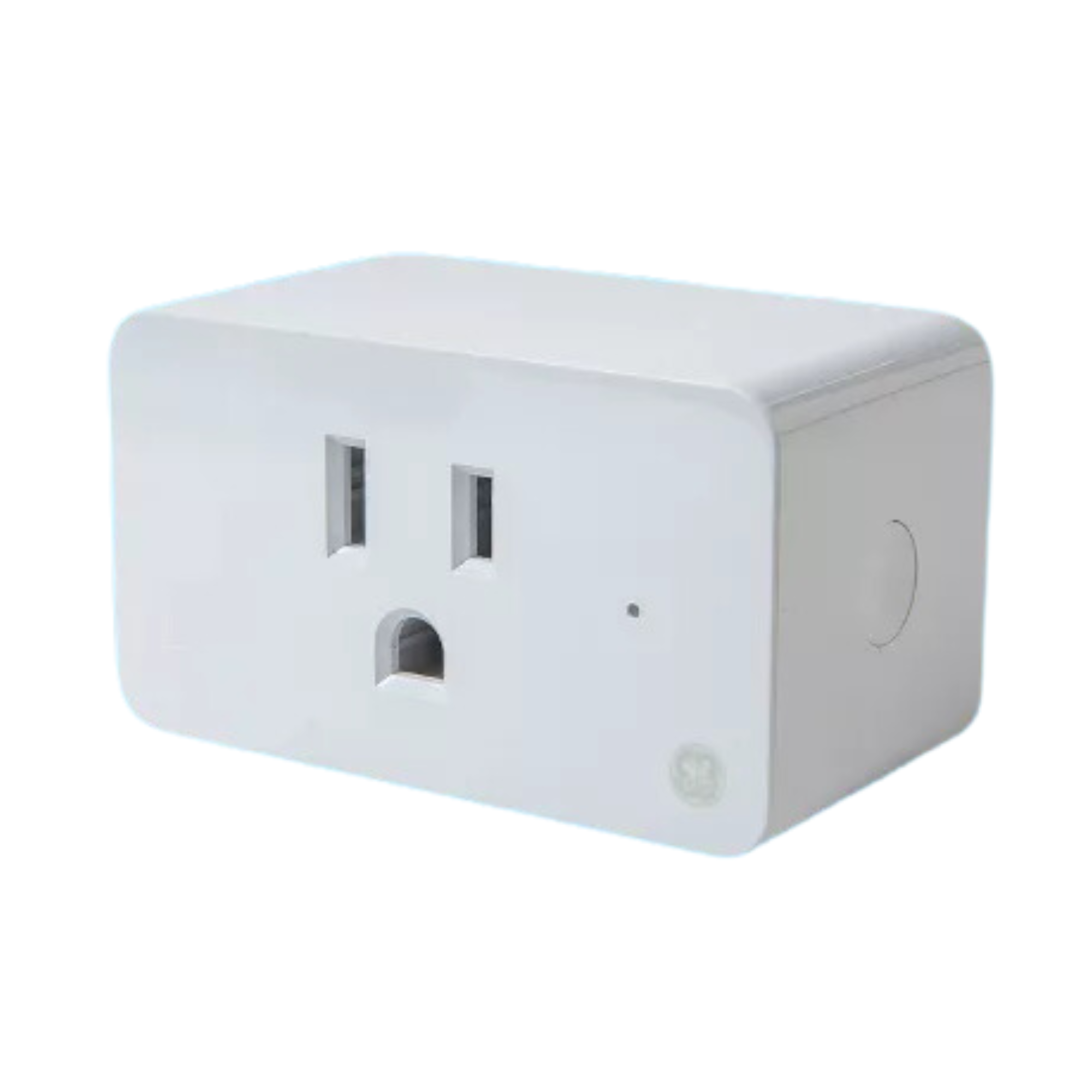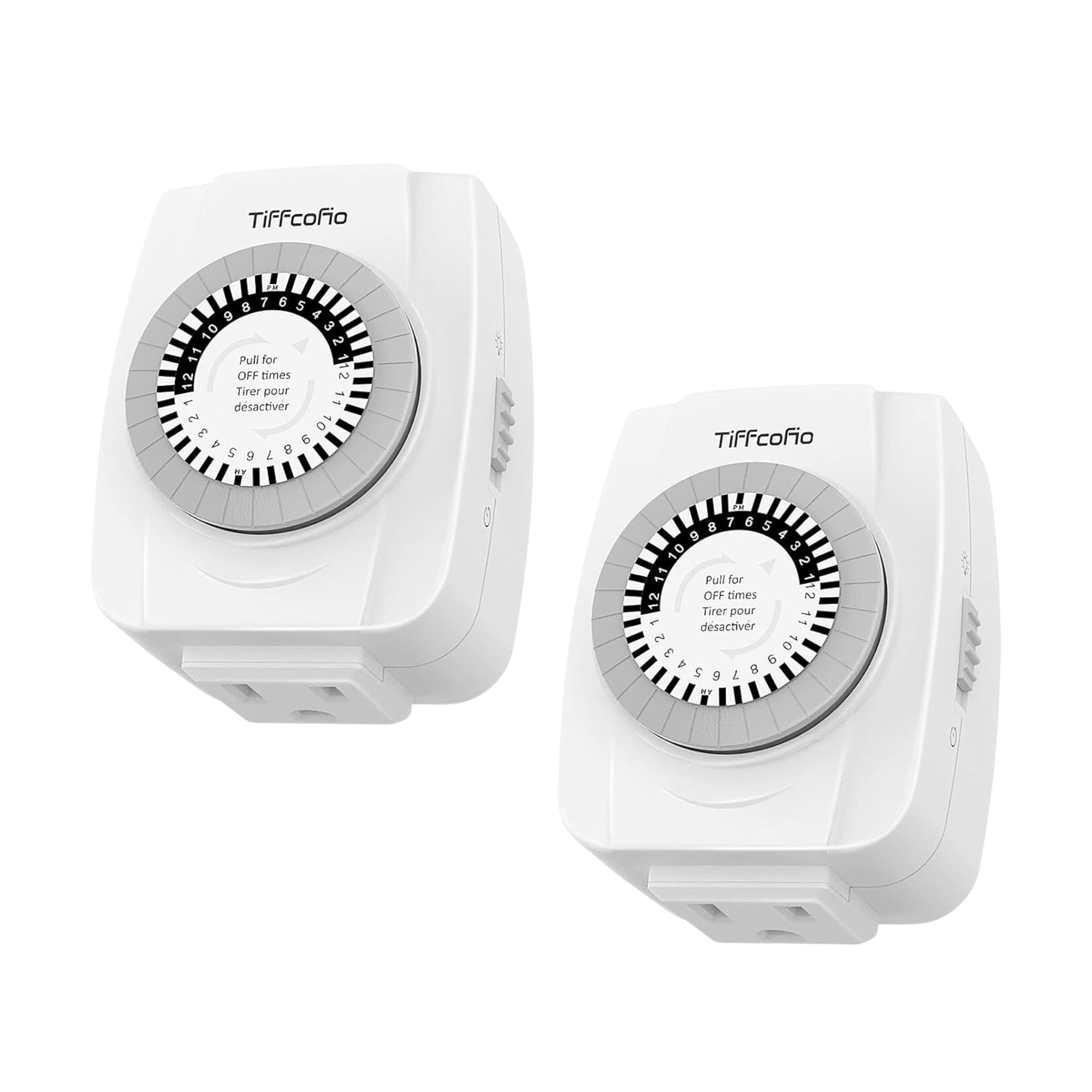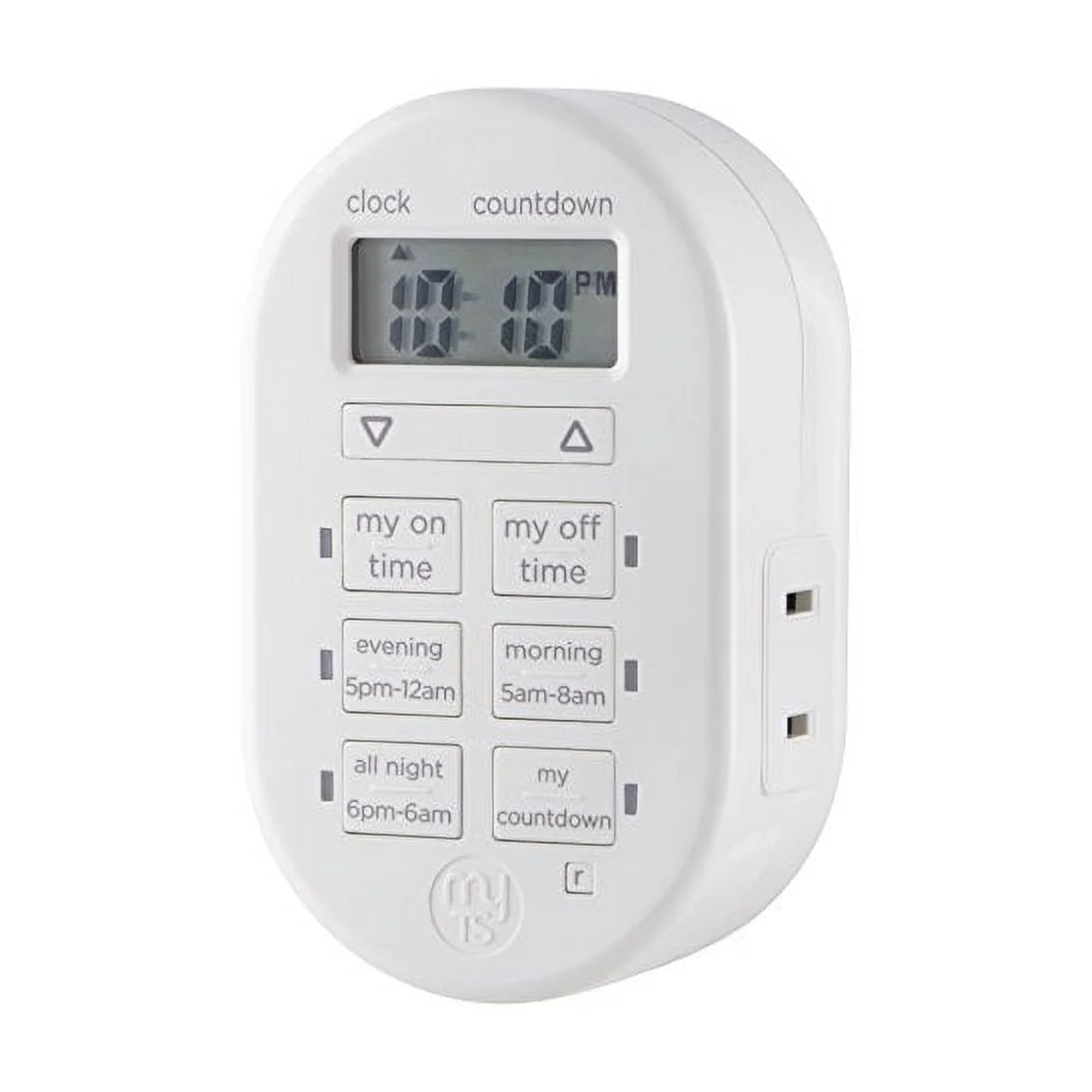6 Household Appliances Experts Urge You to Unplug During a Heatwave to Avoid Surges and Overheating
Summer is well and truly here and with the already scorching temperatures set to increase, you might want to turn these appliances off to reduce fire risks
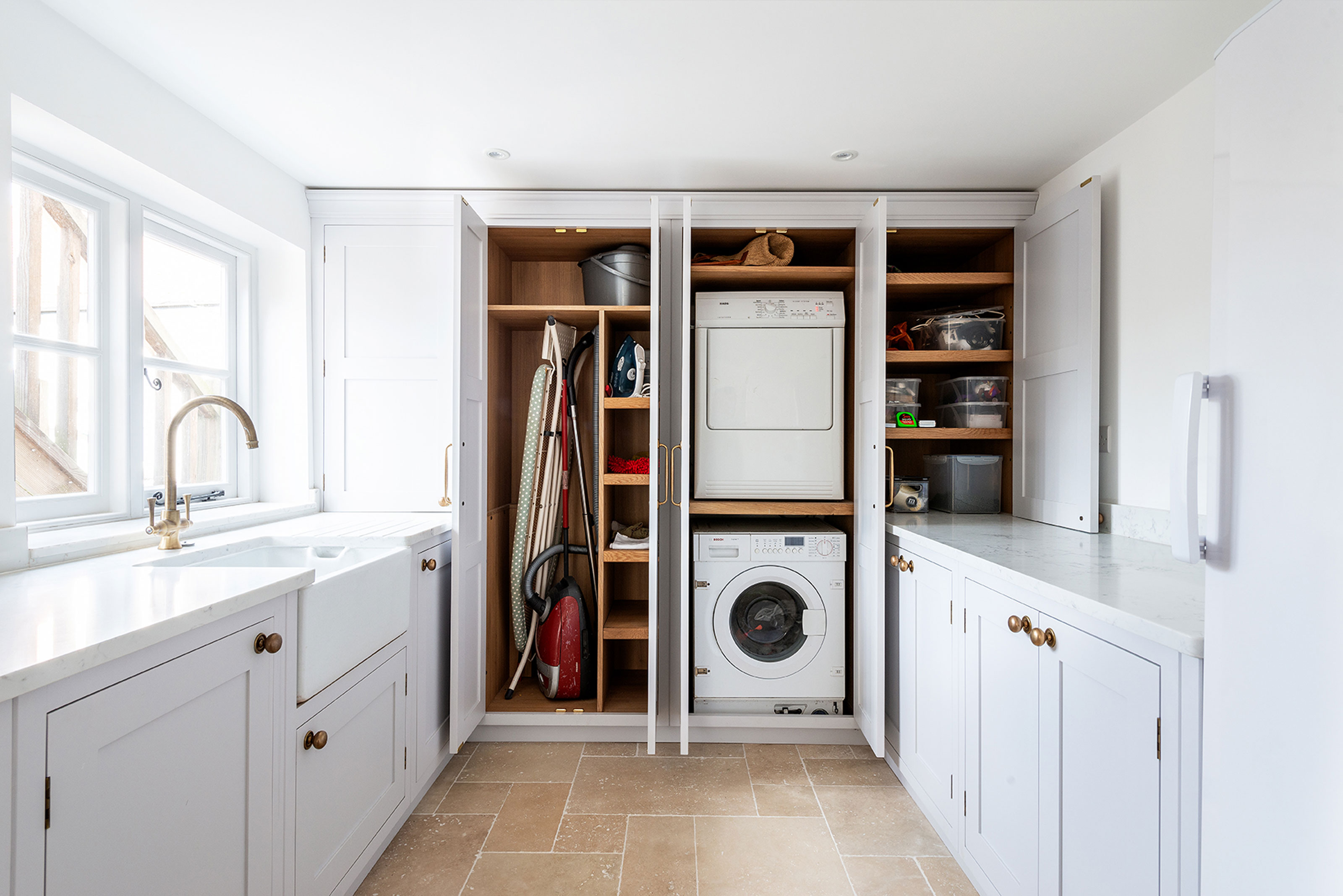

Love it or hate it, summer's heat is in full force. Heatwaves are becoming more intense every year, and with scorching temperatures on the up, it calls for some savvy safety precautions when it comes to your tech.
It's easy to overlook the impact temperatures can have on our everyday appliances. While you'll certainly be using your air-con and space fans a lot more over the next few months, your common devices will be affected too - whether you're using them or not. Just as we humans can overheat, so can our tech and so, for extra safety, it's best to switch some of them off when a heatwave hits.
'During the hotter months of the year, it’s recommended you only have appliances and electronics plugged in that you need to use at that moment,' explains Dan Mock, an electronics expert and vice president of Mister Sparky. 'In addition to kitchen or laundry appliances, printers, gaming consoles, and computers should be unplugged when not in use.' Much like the insight we offer on what appliances to unplug before vacation, here, we offer some more insight into which appliances should be turned off when temperatures soar.
Household Appliances to Switch Off During a Heatwave
1. Dryers
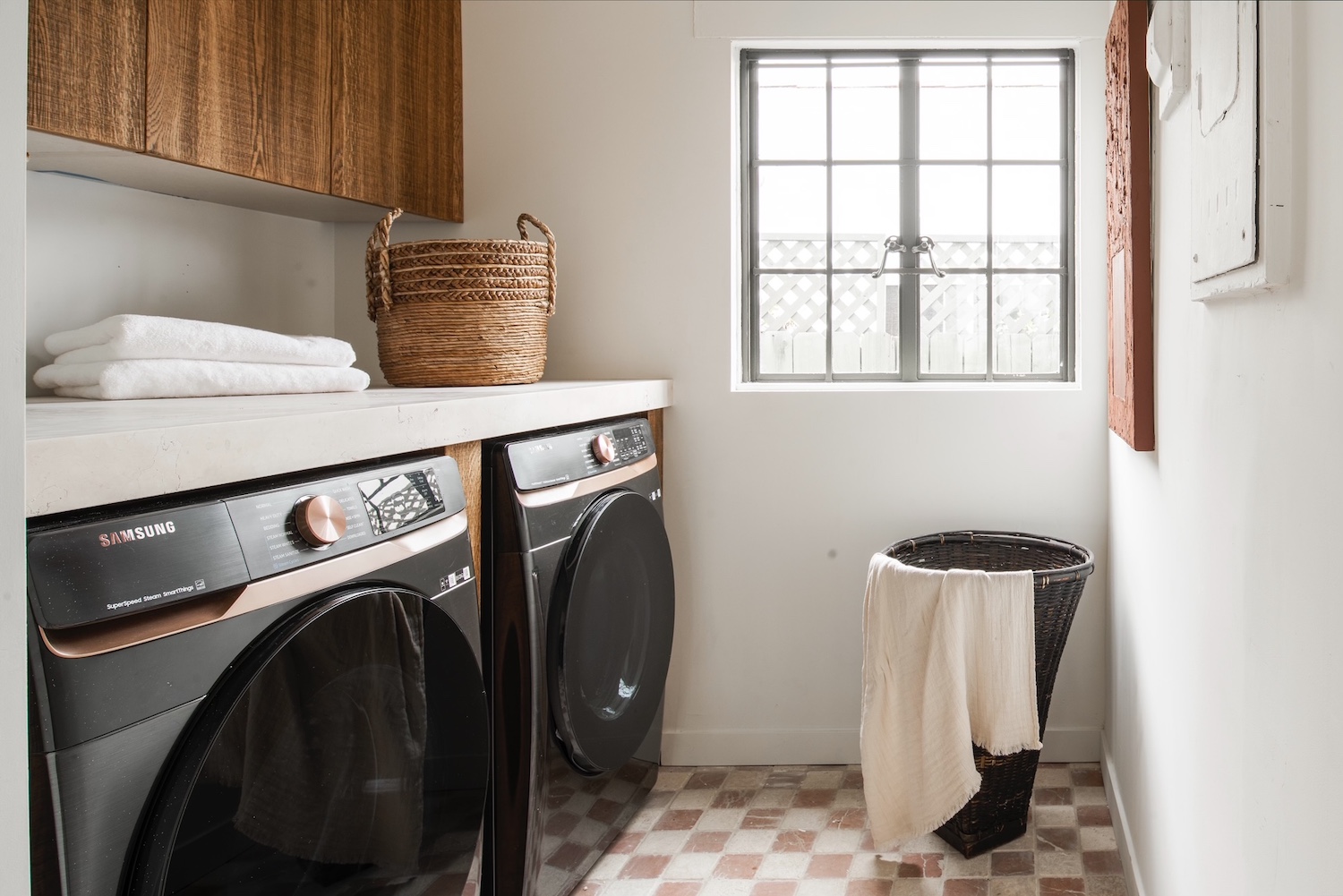
If there's one thing heatwaves are good for, it's the opportunity to dry your clothes outside on the washing line instead of the laundry room, but not all of us have access to an outdoor space. If you're still using your tumble dryer - or you still have it switched on despite the weather - be sure to unplug it from the outlet when not in use.
'The dryer has heating elements that, if overheated, may ignite and cause a fire,' explains Dan Mock. 'The chances of this happening increase when homeowners don’t regularly clean the lint trap, too.'
2. small kitchen appliances
Kitchen countertop appliances are some of the biggest energy drainers in our homes, and they pose one of the biggest risks during a heatwave, too. 'These include toasters, coffee makers, electric kettles, and food processors,' says Jae Ro, expert at plug specialists, Signal & Power. 'These appliances can overheat, especially if they're crammed together on a counter with poor ventilation.'

Dan Mock is Vice President of Operations for Mister Sparky. With decades of experience in the home services industry, Dan knows what’s required to run a successful business and franchise that will help deliver the services and results today’s homeowners demand.
3. Refrigerators
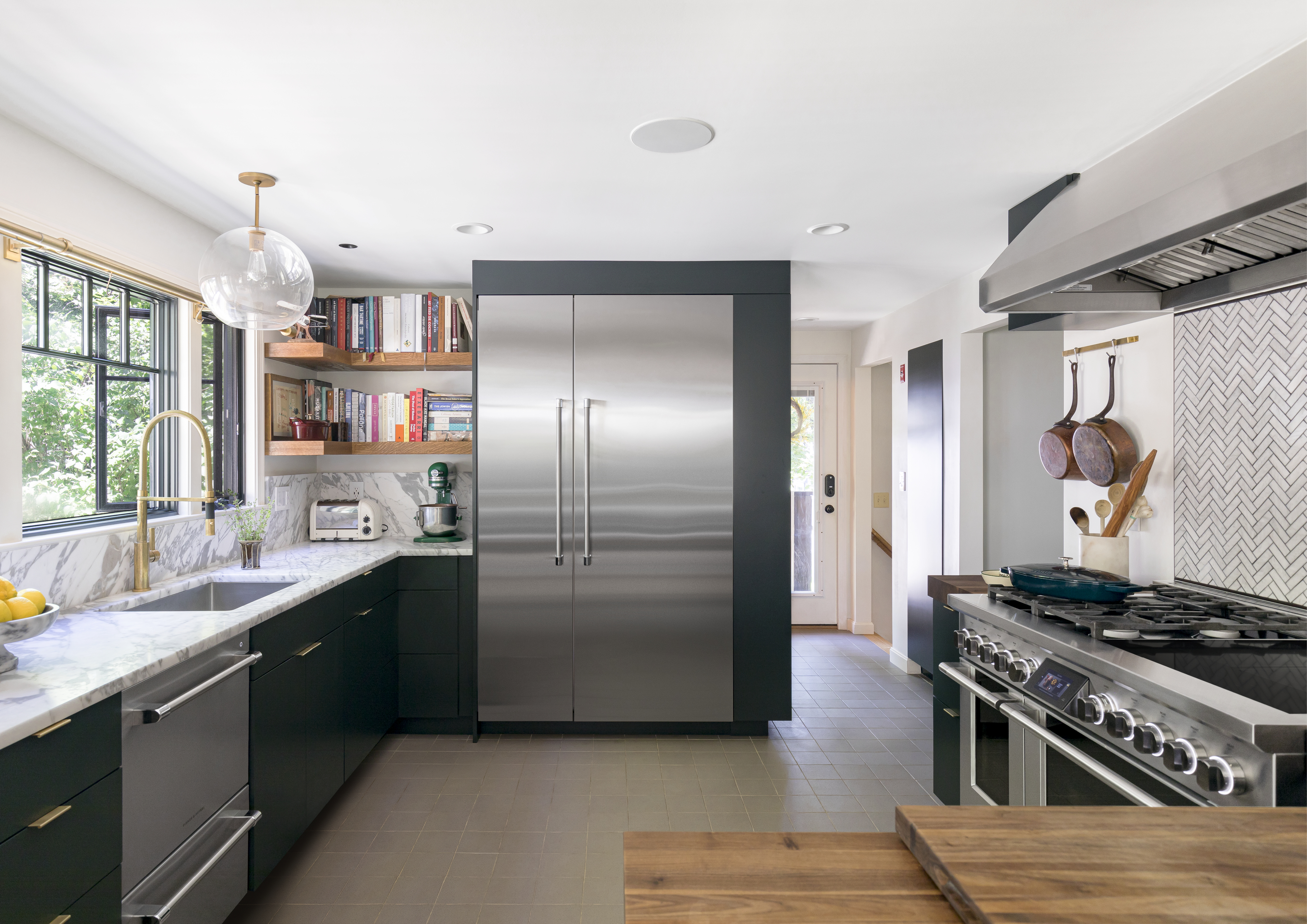
Fridges and freezers are of course some of the more essential appliances during a heatwave. Besides supplying ice and popsicles they prevent our food from going off too quickly, but they will be spending most of their time in overdrive during a heatwave which means you should also keep a close eye on them once temperatures heat up.
'These appliances are working 24/7 to keep food cold so naturally, fire risks can be higher with refrigerators,' Dan notes. 'Make sure you clean the coils behind your refrigerator regularly. The compressor can also overheat or cause an electrical short, which is a fire hazard.'
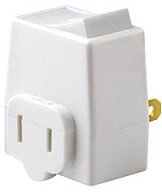
Price: $14.95
This clever gadget lets you flick a switch to disconnect your appliances from the electricity supply of your outlet, without unplugging.
4. Electronics
Smaller electronic devices can pose a risk during extreme heat, too. 'Televisions, computers, and gaming consoles can all generate heat, especially if they're used for long periods,' says Jae. 'Unplug them when not in use, particularly during a heatwave.'
The same goes for the likes of phone chargers and portable power banks. 'While these use minimal energy on their own, unplugging them can help prevent surges or overheating if there's a sudden power outage during a heatwave,' Jae adds. Be wary of Amazon buys to help you survive a heatwave, too, such as air conditioners and dehumidifers.
5. Dishwashers
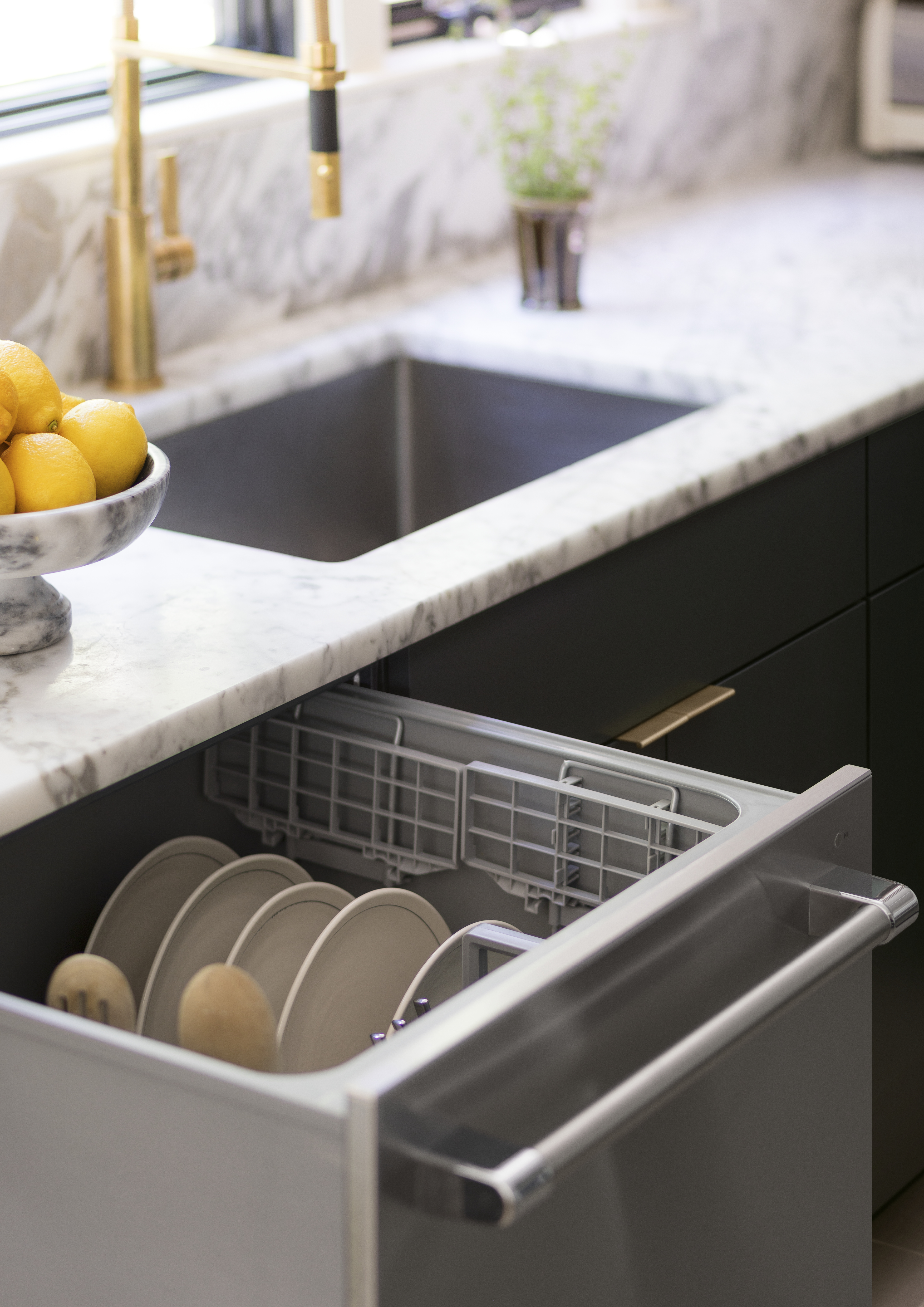
Naturally, we like to spend more time outside when the weather's nice so you might prefer to use the dishwasher more often rather than spend your time chained to the sink. But, as well as being one of the appliances you should turn off before vacation, these large machines can pose a serious risk during hot weather.
'Not only are dishwashers using hot water to clean your dishes but also heat to dry what’s inside,' Dan explains. 'During a heatwave when wires and pipes are hotter than normal, it is possible for older and worn-out dishwashers to catch fire. You should also avoid leaving the house while the dishwasher is on.'
6. Space fans
The moment temperatures rise, we reach for the space fan but don't be tempted to leave it on when you're not around. 'These appliances are meant to generate airflow and are unlikely to overheat on their own,' Jae notes. 'However, it's a good idea to unplug them when not in use to avoid any unnecessary strain on your electrical system during hot weather.'
FAQs
Why is it dangerous to keep appliances plugged in during a heatwave?
Unplugging so many electrical devices in your home might seem excessive, but it's always better to be safe than sorry. 'With an uptick in temperatures comes a higher risk for electronics and appliances throughout the home to overheat if they’re plugged in and working,' Dan says. 'The wires and pipes they may be attached to are going to naturally be hotter during heatwaves like the one we’re currently experiencing. If these elements get incredibly hot, the appliances may not run at their ultimate ability.'
'The home’s electrical panel may also be working harder during a heat wave, which can lead to overheating, surges and fires,' he adds. 'Create a schedule in your AC's thermostat so that it’s set to a higher temperature when no one is home, reducing the energy pull from your AC unit to cool the home.' Not only will it ensure your safetly, but it will help cut your energy bills, too.
Be The First To Know
The Livingetc newsletters are your inside source for what’s shaping interiors now - and what’s next. Discover trend forecasts, smart style ideas, and curated shopping inspiration that brings design to life. Subscribe today and stay ahead of the curve.

Lilith Hudson is a freelance writer and regular contributor to Livingetc. She holds an MA in Magazine Journalism from City, University of London, and has written for various titles including Homes & Gardens, House Beautiful, Advnture, the Saturday Times Magazine, Evening Standard, DJ Mag, Metro, and The Simple Things Magazine.
Prior to going freelance, Lilith was the News and Trends Editor at Livingetc. It was a role that helped her develop a keen eye for spotting all the latest micro-trends, interior hacks, and viral decor must-haves you need in your home. With a constant ear to the ground on the design scene, she's ahead of the curve when it comes to the latest color that's sweeping interiors or the hot new style to decorate our homes.
-
 My 10 Favorite Designs at Milan Design Week 2025 — Out of the Hundreds of Pieces I Saw
My 10 Favorite Designs at Milan Design Week 2025 — Out of the Hundreds of Pieces I SawThere is a new elegance, color, and shape being shown in Milan this week, and these are the pieces that caught my eye
By Pip Rich
-
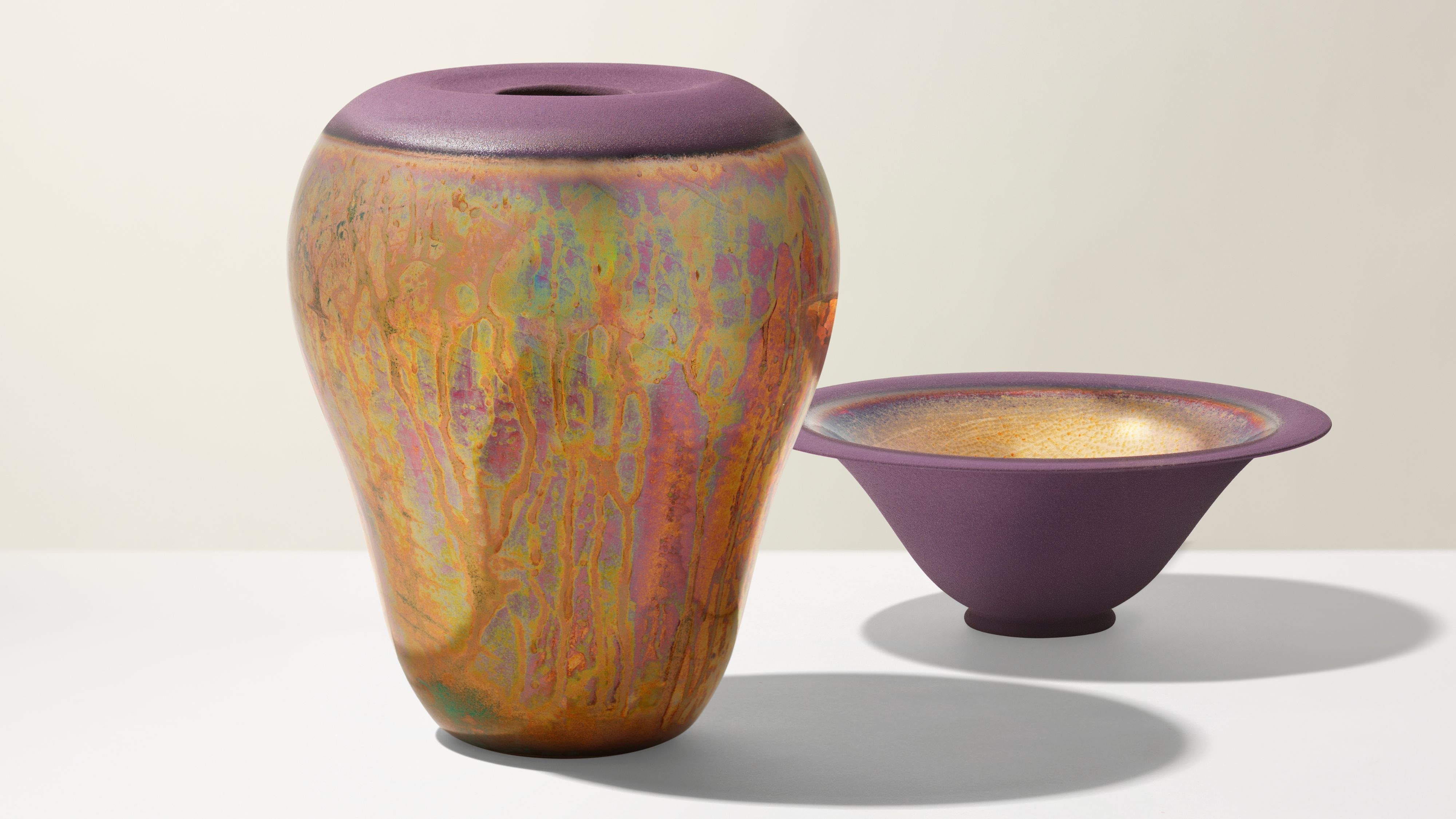 Iridescence Is Chrome’s More Playful, Hard-to-Define Cousin — And You're About to See It Everywhere
Iridescence Is Chrome’s More Playful, Hard-to-Define Cousin — And You're About to See It EverywhereThis kinetic finish signals a broader shift toward surfaces that move, shimmer, and surprise. Here's where to find it now
By Julia Demer
